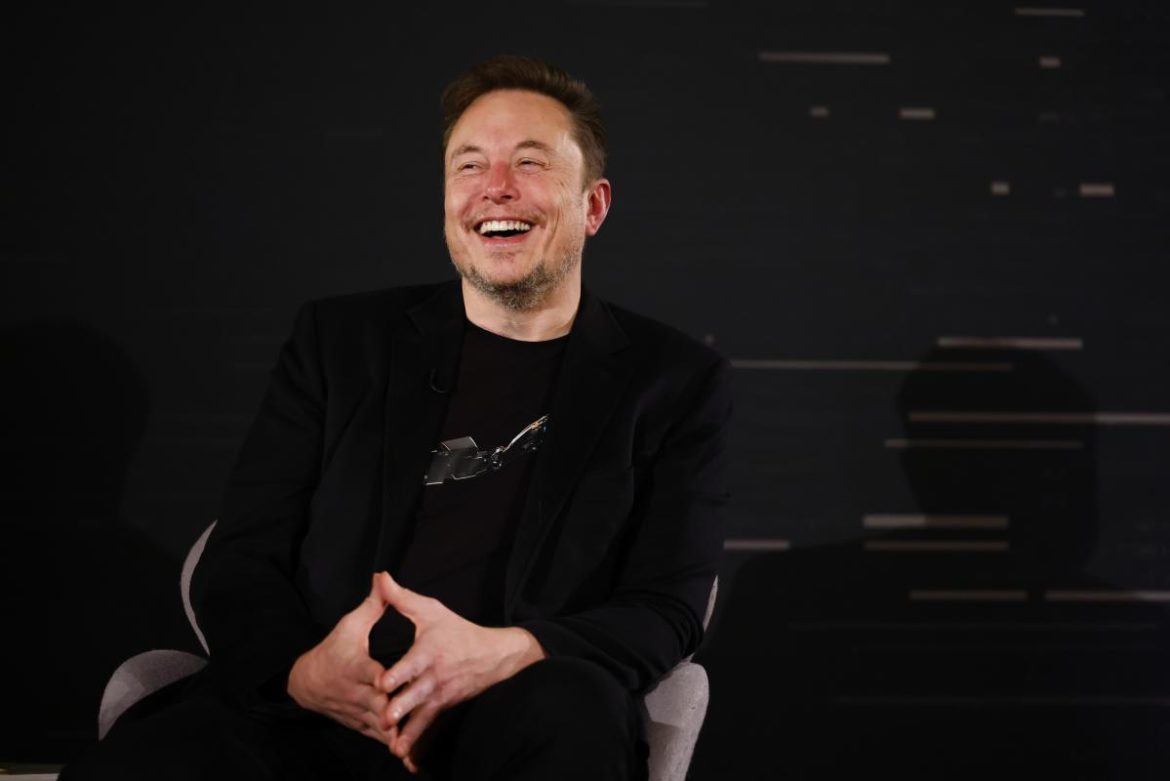

Tesla announced that shareholders supported CEO Elon Musk’s nearly $1 trillion compensation plan, receiving 75% approval from the votes cast.
The board encouraged shareholders to endorse the compensation package that was proposed in September. Leading proxy advisory firms Glass Lewis and ISS advised against it.
The voting results were revealed on Thursday during the company’s annual shareholders meeting in Austin, Texas.
An additional resolution, put forth by individual investor Stephen Hawk, sought approval for Tesla to invest in xAI, Musk’s AI startup established in March 2023 to rival OpenAI. Brandon Ehrhart, Tesla’s general counsel, remarked at the meeting that the company received “more affirmative votes than negative votes,” though many abstained, and Tesla is evaluating subsequent actions.
The compensation package for Musk, who is already the richest person globally, consists of 12 share tranches that will be awarded if Tesla meets specific milestones over the next decade. Additionally, it would enhance Musk’s voting influence in the company, fulfilling his publicly stated demands since early 2024. His stake would increase from approximately 13% to 25%, adding over 423 million shares to his portfolio.
The initial stock tranche is paid out if Tesla achieves a market cap of $2 trillion. Currently, Tesla’s market capitalization stands at $1.54 trillion. The stock awards tied to market cap improvements are linked to operational milestones.
The following nine tranches would be granted if Tesla’s valuation rises in intervals of $500 billion, up to $6.5 trillion. Musk would receive the last two tranches if the market cap ascends in increments of $1 trillion, necessitating a target of $8.5 trillion for Musk to secure the entire package.
Tesla also outlined a series of profit milestones for Musk, starting from $50 billion in annual adjusted profit and reaching up to $400 billion. In the third quarter, Tesla reported adjusted EBITDA of $4.2 billion.
Additional goals associated with the newly sanctioned compensation package include achieving 20 million vehicle deliveries, 10 million active FSD (Full Self-Driving) subscriptions, delivering 1 million bots (Optimus humanoid robots), and having 1 million robotaxis operational commercially. To date, Tesla has delivered over 8 million vehicles, as per its September proxy statement.
The proposed plan does not clarify whether FSD subscriptions need to be purchased or may encompass free trials. Currently, Tesla offers partially automated driving systems marketed as “FSD Supervised” in the U.S. The company aims to enhance its FSD Supervised systems to eliminate the need for human supervision onboard.
During the meeting, Musk asserted that Optimus robots “will eradicate poverty,” “provide everyone with exceptional medical care,” and will be “larger than cell phones, larger than anything.” He also mentioned that these robots could be instrumental in “preventing future crime” by tracking criminals and stopping them from “committing offenses.”
Currently, there is no Optimus robot available for purchase, and Musk did not disclose a timeline for achieving these ambitions.
As previously reported by Reuters, Musk could still earn tens of billions without fulfilling most of the objectives outlined by the board, potentially amassing over $50 billion by meeting a few of the more achievable targets.
There is also a list of “covered events” in the award conditions that would allow Musk to gain shares without achieving the required operational milestones.
Covered events encompass natural disasters, wars, pandemics, and modifications to “international, federal, state, and local law, regulations, or other governmental actions or inactions,” that might inhibit the company’s capacity to design, produce, or market its products in the future.
Shareholders voted on the new strategy following a decision from the Delaware Court of Chancery stating that Musk’s previous 2018 pay plan was improperly granted by the Tesla board and needs to be annulled. Musk has appealed that ruling, and the case will be adjudicated by the Delaware State Supreme Court.
In addition to his role at Tesla, Musk oversees xAI, which has merged with X, leads SpaceX and its satellite internet division Starlink, and is a founder of the brain-computer interface firm Neuralink and the tunneling enterprise The Boring Company.
He has also been actively involved in politics, most notably working to reinstate President Donald Trump into the White House, and subsequently spearheading a major initiative to reduce the size of the federal government at the commencement of his second term.
The National Bureau of Economic Research released a study last month estimating that Tesla sales in the U.S. from October 2022 through April of this year would have been 67% to 83% higher were it not for Musk’s “polarizing and partisan actions.”
The newly endorsed pay plan imposes no restrictions on Musk’s political endeavors and does not enforce a minimum time commitment he must engage in working at Tesla.

